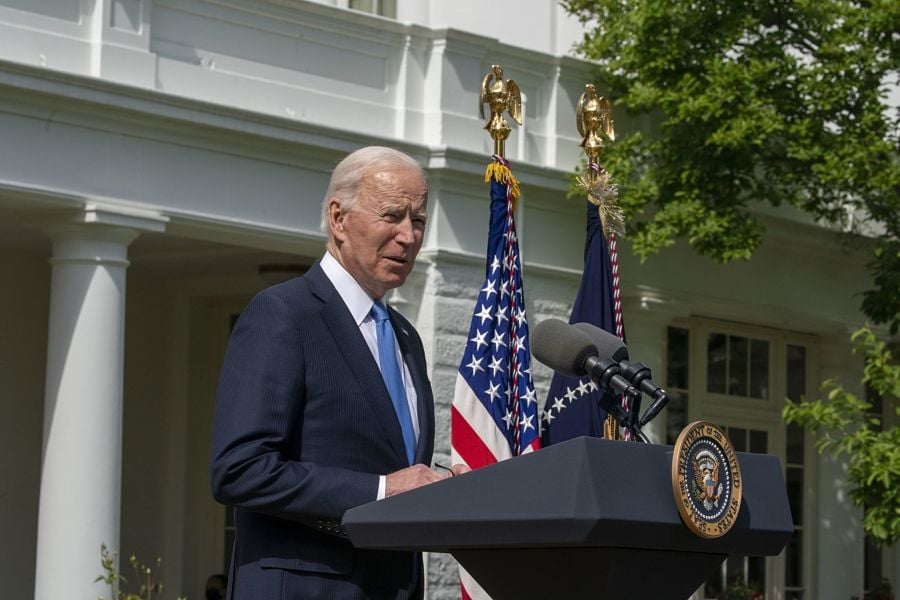

An executive order President Biden signed Friday afternoon could make it easier for financial advisers to switch firms and harder for financial institutions to merge.
The executive order is designed to promote competition in the economy and encompasses 72 initiatives across a dozen federal agencies, according to a White House fact sheet.
The document encourages regulators to ban or limit noncompete agreements and occupational licensing requirements that make it harder for workers to change jobs. It also tells the Department of Justice and banking regulators — the Federal Reserve, the Federal Deposit Insurance Corp. and the Office of the Comptroller of Currency — to update guidelines for bank mergers and apply more scrutiny to them.
Although the executive order doesn’t directly touch on the financial advice sector or its regulators, it could have implications for advisers and firms.
For instance, an administration effort to curtail noncompete agreements could affect registered representatives and advisers who are employees of a firm looking to join a new one.
“The vast majority of W-2 advisers have some sort of noncompete or non-solicit in their contracts,” said Louis Diamond, president of Diamond Consultants, an adviser recruiting firm. “Removing some of these restrictions could be a net positive to adviser movement.”
Under the executive order, the Federal Trade Commission will take the lead on policies related to noncompete agreements, which means their effect on advisers could be limited, said Daren Domina, a partner at Haynes and Boone.
“Given the historic scope of authority of the FTC, it is not clear how the executive order’s encouragement to the FTC to ban or limit non-compete agreements could be implemented with respect to securities professionals without a joint effort by the FTC and the Securities and Exchange Commission,” Domina said in a statement.
The broker protocol, a pact among several financial firms that makes it easier for brokers and advisers to switch firms, has helped facilitate job hopping while limiting lawsuits, even though Morgan Stanley and UBS have withdrawn from it.
The protocol and other characteristics of the financial industry will limit the impact of the Biden executive order, said Danny Sarch, president of Leitner Sarch Consultants, a recruiting firm.
The bigger hang up to adviser mobility is nonsolicitation, which limits their ability to take their clients with them, rather than noncompete restrictions that clamp down on their taking a new job.
“These sweeping statements don’t take into consideration the nuances of this business,” Sarch said. “It’s important to recognize that noncompete and nonsolicit are not the same thing.”
The executive order also encourages the FTC to ban “unnecessary and burdensome” occupational licensing restrictions that can keep workers from moving to new jobs.
The Certified Financial Planner Board of Standards Inc. has resisted state regulation of financial planning, including legislation that would reform credentialing and potentially put new restrictions on using the CFP mark.
The goal of removing employment barriers and promoting consistent licensing requirements must be balanced with consumer protection, said Maureen Thompson, CFP Board vice president for public policy.
“When it comes to someone’s money, we need to ensure that those employed in financial services and entrusted to make decisions on behalf of the consumer are qualified and ethical,” Thompson said in a statement. “To do this, we must continue to apply the highest standards of licensing and certification.”
The executive order doesn’t provide specific mandates for the Department of Justice when it comes to reviewing mergers and acquisitions. But it does emphasize that the Biden administration wants the DOJ and the FTC to enforce antitrust laws “vigorously” and apply “greater scrutiny” to the transactions.
The executive order probably wouldn’t have affected the recent mergers between Schwab and TD Ameritrade or Morgan Stanley and E Trade, said Greg Lyons, a partner at Debevoise & Plimpton.
They likely would still have been approved “on their merits,” Lyons said.
But future combinations of financial firms could face more hurdles from federal regulators.
“It will require more detail as to the competitive implications of the merger,” Lyons said. “I do think it puts regulators on notice that this is important to the Biden administration.”
Competition in the financial sector has evolved, Lyons said. It’s no longer just bank-versus-bank but also banks versus financial technology companies.
“It’s important the regulators consider the current environment in which banks are operating when evaluating these mergers,” Lyons said.

A Texas-based bank selects Raymond James for a $605 million program, while an OSJ with Osaic lures a storied institution in Ohio from LPL.

The Treasury Secretary's suggestion that Trump Savings Accounts could be used as a "backdoor" drew sharp criticisms from AARP and Democratic lawmakers.

Changes in legislation or additional laws historically have created opportunities for the alternative investment marketplace to expand.

Wealth managers highlight strategies for clients trying to retire before 65 without running out of money.

Shares of the online brokerage jumped as it reported a surge in trading, counting crypto transactions, though analysts remained largely unmoved.
Orion's Tom Wilson on delivering coordinated, high-touch service in a world where returns alone no longer set you apart.
Barely a decade old, registered index-linked annuities have quickly surged in popularity, thanks to their unique blend of protection and growth potential—an appealing option for investors looking to chart a steadier course through today's choppy market waters, says Myles Lambert, Brighthouse Financial.
